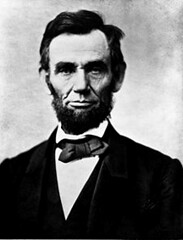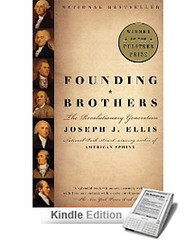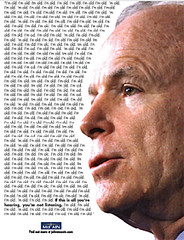
When Facebook disabled the profile of Boycott BP, the reaction from 750,000 members was almost immediate. Within minutes, most people, including Public Citizen, believed a BP complaint prompted the action.
Facebook, which reinstated the content, later issued a statement that said its automated systems made the mistake. The page was reinstated after the error was discovered. Public Citizen says the statement was insufficient.
Regardless of the why, it raises interesting questions for communicators, suggesting a need for new rules governing how crisis communication is managed. And, it also serves as an indicator of how damaged the BP brand really is. Even when BP isn't responsible for attempting to censor communication, blame is automatically assigned to the company.
It's anticipated and expected, because the public expects no less from a company that has broken trust. BP has made several mistakes in attempting to control communication as opposed to managing information. It doesn't even matter if almost half of all censor incidents were created by the government. It's BP's fault.
The Rise Of The Anti-Brand, Fake Public Relations, and Instant Journalism.
Andrew Fowler suggested several steps worth considering. But any solutions have to be situational.
In the case of BP, company communicators might as well consider the site an asset. BP boycotters and BPGlobalPR actually help corral all communication about the company, providing insights into where the communication is crumbling and what miscommunication or inaccurate information might exist.
The goal isn't to control communication. There isn't much use in sharing an opinion about them. The goal needs to be focused on managing information, with an emphasis not on trying to preserve the brand (BP is well beyond that) but by clarifying factual information (and not necessarily directly).
BP does some of this well. Some of it, not so well. Some of it well. Some of it, not so well...
You may reproduce the images on the understanding that (i) any reproduction of these images will include the following acknowledgement adjacent to the image(s) used - '© BP p.l.c.' and (ii) these images will not be used in connection with any purpose that is prejudicial to BP, its officers or employees or any other third party. The images may not be sold.
From a classic crisis communication standpoint, some communicators are giving BP a "B" for hitting all the main points. Personally, I would give it an "F" and that seems pretty generous.
The reason for my low mark is simple enough. Classic crisis communication bullet points do not address several key challenges that arise when communication isn't handled properly.
• The Anti-Brand. Whether spontaneous or organized by advocates with agendas, anti-brands already know the tenets of crisis communication and are well-prepared to discount every step. Any apology will be labeled insincere. Any accounting will be inadequate. Any acceptance of responsibility will not be believed.
• Fake PR. Whether you borrow Fowler's term or call them Mock Brands, the general disposition is the same. These people aim to mock you and your company. Sometimes the efforts are a form of flattery; sometimes they are not. Obviously, the various fake accounts related to BP have very little to do with admiration.
• Instant Journalism. While there are mainstream reporters and established citizen journalists, a crisis of this magnitude draws out people who have never been reporters before to suddenly feel compelled to cover it. En masse, handling every request just doesn't scale.
What's the remedy? As I wrote early on in the crisis, actions speak louder than words. And in this case, there were only three words tied to actions that could have helped preserve BP (and the Obama administration for that matter). What were those words?
We need help.
Imagine how different the communication might have been had this action been the cornerstone of the crisis from day one.
Skimmers would have dispatched. Booms would have been deployed. Media would have had front row seats. People would have known exactly what to do to help. Environmentalists would have been standing by. Localized emergency response crews would have been ready for multiple crises if and when they occurred. Nonprofit organizations would have coordinated economic impact. And so on and so forth.
Had this occurred, BP wouldn't even be the story and neither would the Obama administration. The story would have been the generosity of the Dutch and other countries sending skimmers. The story would have been local citizens preparing for the worst. The story would have been about a country uniting against a common problem. In sum, the story would have been about everything and everybody else except BP and except the government.
By not being the story, the damage to both could have minimized and, as a result, the respective brands preserved. Instead of a Boycott BP Facebook group, there might have been a "Help BP" Facebook group. Instead of "BPGlobalPR," there might have been an "DailyGulfHero" Twitter account. Instead of writing and reporting on all the problems, citizen volunteers documenting their own volunteer efforts, uncensored, would have quelled the need.
Neither BP nor the Obama administration seem to understand this simple truth. Action or inaction dictates brand value. Instead, they continue to make themselves the story and inexplicably tell people to sit back and rate their performance. The sheer magnitude of ego to "own this crisis" cannot be underscored enough.
They got what they asked for. You don't have to ask for it.
The first step toward a remedy for anti-brands, fake PR, and investigative journalists is to recognize that they are outcomes, symptoms that prove your actions are not aligned with your message. And knowing this, there are only four possible actions.
• Acknowledge them and let them live, unhindered. (Apple)
• Selectively interact, correcting facts but not opinions. (AT&T)
• Engage them by opening up a direct communication channel. (CBS)
• Change your actions until they no longer seem relevant or needed. (Dominos)



























